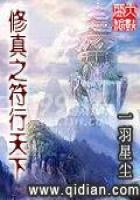The line of prophecy in which these symbols are found begins with Revelation 12, with the dragon that sought to destroy Christ at His birth. The dragon is said to be Satan (Revelation 12:9); he it was that moved upon Herod to put the Saviour to death. But the chief agent of Satan in making war upon Christ and His people during the first centuries of the Christian Era was the Roman Empire, in which paganism was the prevailing religion. Thus while the dragon, primarily, represents Satan, it is, in a secondary sense, a symbol of pagan Rome.
In chapter 13 (verses 1-10) is described another beast, "like unto a leopard," to which the dragon gave "his power, and his seat, and great authority." This symbol, as most Protestants have believed, represents the papacy, which succeeded to the power and seat and authority once held by the ancient Roman empire. Of the leopardlike beast it is declared: "There was given unto him a mouth speaking great things and blasphemies. . . . And he opened his mouth in blasphemy against God, to blaspheme His name, and His tabernacle, and them that dwell in heaven. And it was given unto him to make war with the saints, and to overcome them: and power was given him over all kindreds, and tongues, and nations." This prophecy, which is nearly identical with the description of the little horn of Daniel 7, unquestionably points to the papacy.
"Power was given unto him to continue forty and two months." And, says the prophet, "I saw one of his heads as it were wounded to death." And again:
"He that leadeth into captivity shall go into captivity: he that killeth with the sword must be killed with the sword." The forty and two months are the same as the "time and times and the dividing of time," three years and a half, or 1260 days, of Daniel 7-- the time during which the papal power was to oppress God's people. This period, as stated in preceding chapters, began with the supremacy of the papacy, A.D. 538, and terminated in 1798. At that time the pope was made captive by the French army, the papal power received its deadly wound, and the prediction was fulfilled, "He that leadeth into captivity shall go into captivity."At this point another symbol is introduced. Says the prophet: "I beheld another beast coming up out of the earth; and he had two horns like a lamb."Verse II. Both the appearance of this beast and the manner of its rise indicate that the nation which it represents is unlike those presented under the preceding symbols. The great kingdoms that have ruled the world were presented to the prophet Daniel as beasts of prey, rising when "the four winds of the heaven strove upon the great sea." Daniel 7:2. In Revelation 17 an angel explained that waters represent "peoples, and multitudes, and nations, and tongues." Revelation 17:15. Winds are a symbol of strife. The four winds of heaven striving upon the great sea represent the terrible scenes of conquest and revolution by which kingdoms have attained to power.
But the beast with lamblike horns was seen "coming up out of the earth."Instead of overthrowing other powers to establish itself, the nation thus represented must arise in territory preciously unoccupied and grow up gradually and peacefully. It could not, then, arise among the crowded and struggling nationalities of the Old World--that turbulent sea of "peoples, and multitudes, and nations, and tongues." It must be sought in the Western Continent.
What nation of the New World was in 1798 rising into power, giving promise of strength and greatness, and attracting the attention of the world? The application of the symbol admits of no question. One nation, and only one, meets the specifications of this prophecy; it points unmistakably to the United States of America. Again and again the thought, almost the exact words, of the sacred writer has been unconsciously employed by the orator and the historian in describing the rise and growth of this nation. The beast was seen "coming up out of the earth;" and, according to the translators, the word here rendered "coming up" literally signifies "to grow or spring up as a plant." And, as we have seen, the nation must arise in territory previously unoccupied. A prominent writer, describing the rise of the United States, speaks of "the mystery of her coming forth from vacancy,"and says: "Like a silent seed we grew into empire."--G. A. Townsend, The New World Compared With the Old, page 462. A European journal in 1850 spoke of the United States as a wonderful empire, which was "emerging," and "amid the silence of the earth daily adding to its power and pride." --The Dublin Nation. Edward Everett, in an oration on the Pilgrim founders of this nation, said: "Did they look for a retired spot, inoffensive for its obscurity, and safe in its remoteness, where the little church of Leyden might enjoy the freedom of conscience? Behold the mighty regions over which, in peaceful conquest, . . . they have borne the banners of the cross!"--Speech delivered at Plymouth, Massachusetts, Dec.
22, 1824, page 11.
"And he had two horns like a lamb." The lamblike horns indicate youth, innocence, and gentleness, fitly representing the character of the United States when presented to the prophet as "coming up" in 1798. Among the Christian exiles who first fled to America and sought an asylum from royal oppression and priestly intolerance were many who determined to establish a government upon the broad foundation of civil and religious liberty. Their views found place in the Declaration of Independence, which sets forth the great truth that "all men are created equal" and endowed with the inalienable right to "life, liberty, and the pursuit of happiness." And the Constitution guarantees to the people the right of self-government, providing that representatives elected by the popular vote shall enact and administer the laws. Freedom of religious faith was also granted, every man being permitted to worship God according to the dictates of his conscience.















